Last updated on July 22nd, 2022 at 06:26 pm
Many people think of history as dry facts and dusty old tomes. But in truth, history is a living, breathing entity that can provide us with invaluable insights into our past and present.
In the field of medical history, this is particularly true. By studying the past, we can better understand the diseases that affect us today, as well as the treatments and methods used to diagnose and treat them.
So if you’re interested in learning more, here are some medical history books you should check out.
The Great Influenza: The Story of the Deadliest Pandemic in History by John M. Barry
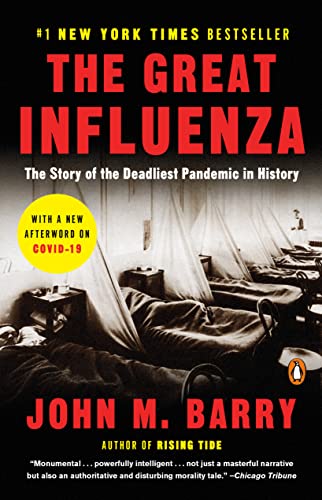
The Great Influenza: The Story of the Deadliest Pandemic in History by John M. Barry is one of the most important medical history books ever written. Barry dissects the 1918 influenza pandemic, which took the lives of an estimated 50 million people worldwide.
He argues that the pandemic was caused by a perfect storm of medical, social, and biological factors. First and foremost, he points to the lack of medical knowledge at the time. Doctors were unaware of how the virus spread and had no effective treatment.
Additionally, social conditions were ripe for an outbreak. Crowded cities provided ample opportunities for the virus to spread, and poor hygiene made things worse.
Barry suggests that the 1918 flu was particularly virulent because it was a new strain that had not been seen before.
This fact allowed it to overwhelm the immune system of its victims quickly. The Great Influenza is a must-read for anyone interested in medical history books or the science of epidemics.
Medical Apartheid: The Dark History of Medical Experimentation on Black Americans from Colonial Times to the Present by Harriet A. Washington
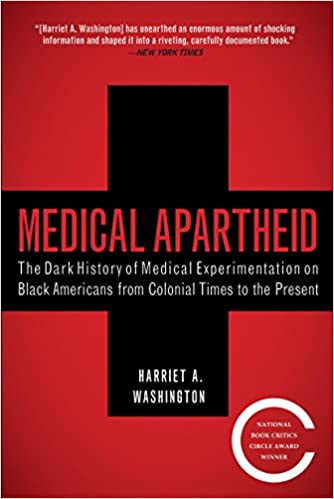
Harriet A. Washington’s Medical Apartheid is a groundbreaking history of medical experimentation on Black Americans from colonial times to the present.
The book documents how Black Americans have been used as guinea pigs in medical experiments, often without their consent or knowledge. In one of the most famous examples, hundreds of poor Black men were deliberately left untreated for syphilis so that doctors could observe the progression of the disease.
Medical Apartheid is a sobering account of how the medical profession has exploited Black Americans for its gain. But it is also a story of hope in that it documents how Black Americans have fought back against medical abuse and worked to advance their health and well-being.
The Facemaker: A Visionary Surgeon’s Battle to Mend the Disfigured Soldiers of World War I by Lindsey Fitzharris
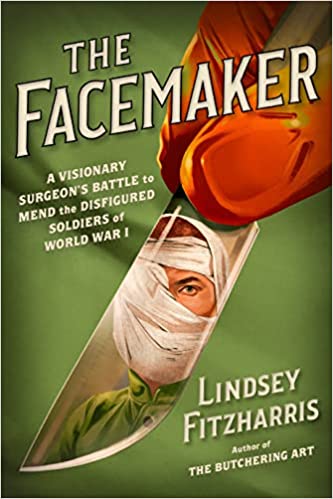
In her new book, The Facemaker: A Visionary Surgeon’s Battle to Mend the Disfigured Soldiers of World War I, Lindsey Fitzharris tells the story of Harold Gillies, a surgeon who pioneered the field of plastic surgery. During World War I, Gillies treated thousands of soldiers who had been disfigured by shrapnel and other injuries.
He developed groundbreaking techniques for repairing facial wounds, and his work helped change how we think about facial disfigurement. The Facemaker is a fascinating look at Gillies’s life and work, providing valuable insight into the history of plastic surgery.
The Emperor of All Maladies: A Biography of Cancer by Siddhartha Mukherjee
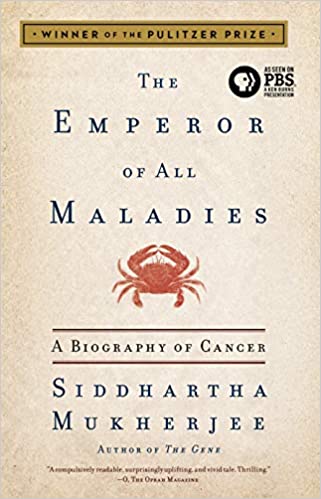
Pulitzer Prize-winning author Siddhartha Mukherjee provides a sweeping and eloquent history of one of humanity’s oldest and deadliest diseases: cancer.
The book begins with the story of Mukherjee’s family, tracing the cancer that afflicted his grandfather and father through the generations.
He then turns to the history of cancer research, starting with the early attempts to understand the disease and its causes.
In the second half of the book, Mukherjee profiles some of the key figures in cancer research, including Mary-Claire King, who discovered the BRCA1 gene, Harold Varmus, who helped to develop targeted therapies, and Carl June, who is working on new ways to use the immune system to fight cancer.
Throughout, Mukherjee brings his remarkable storytelling talents to bear on this subject, making The Emperor of All Maladies an essential read for anyone interested in understanding this complex and fascinating disease.
Empire of the Scalpel: The History of Surgery by Ira Rutkow M.D
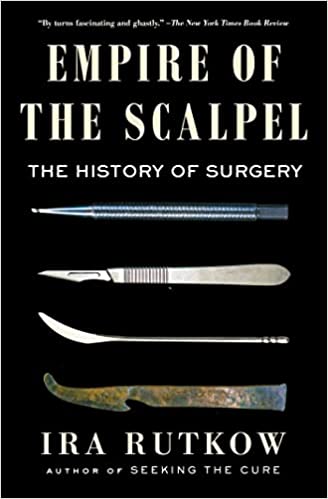
Empire of the Scalpel: The History of Surgery by Ira Rutkow M.D is a comprehensive and fascinating look at the history of surgical procedures and practices.
Dr. Rutkow begins by discussing early surgical techniques and how they have evolved. Next, he describes the development of modern surgery, from the first successful blood transfusions and organ transplants to the sophisticated techniques used today.
Throughout the book, Dr. Rutkow offers insights into the lives of some of the most critical figures in surgical history, including pioneers like Ignaz Semmelweis and Joseph Lister. Empire of the Scalpel is an essential read for anyone interested in medicine’s history or modern surgery’s development.
Women in White Coats: How the First Women Doctors Changed the World of Medicine by Olivia Campbell
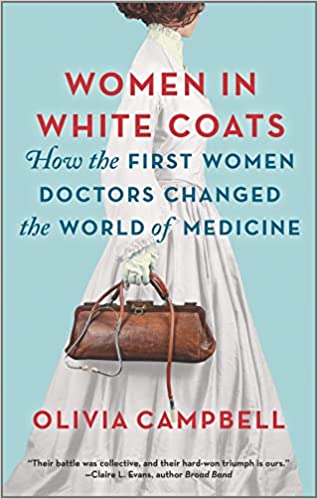
Women in White Coats tells the fascinating story of how the first women doctors changed the world of medicine. Author Olivia Campbell draws on a wealth of primary sources to paint a vivid picture of the challenges these trailblazing women faced.
Many pioneers featured in the book overcame tremendous odds to receive a medical education and establish successful careers. In so doing, they paved the way for future generations of women doctors. The book is inspiring for anyone interested in the history of medicine or the fight for gender equality.
The Butchering Art: Joseph Lister’s Quest to Transform the Grisly World of Victorian Medicine by Lindsey Fitzharris
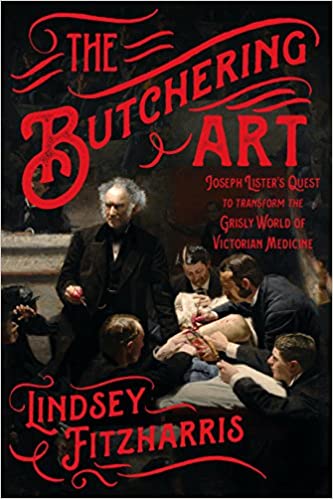
In The Butchering Art, historian Lindsey Fitzharris chronicles the dramatic changes in surgery during the 19th century. Before the 1830s, surgery was a brutal and dangerous procedure.
Without anesthesia or antisepsis, patients frequently died from infection or blood loss. However, all of that began to change with the work of surgeon Joseph Lister. Inspired by the work of French chemist Louis Pasteur, Lister pioneered the use of antisepsis in surgery.
By spraying Carbolic Acid on wounds and instruments, he dramatically reduced the infection rate. As a result, Lister’s techniques quickly began transforming Victorian medicine’s grisly world. Today, his work is considered to be one of the most essential achievements in the history of surgery.
Sense of Humors: The Human Factor in the History of Medicine by Luca Borgh
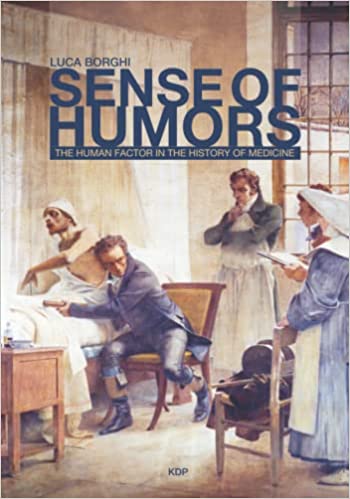
Sense of Humors is a fascinating exploration of humor’s role in the history of medicine. Dr. Luca Borghi draws on a wealth of sources to trace the evolution of medical jokes and other forms of humor from the ancient world to the present day.
He shows how humor has been used to relieve tension, build rapport, and even diagnose and treat illness. Along the way, he dispels the notion that humor is a recent invention, demonstrating that it has been an integral part of medical practice for millennia.
This work will appeal to anyone interested in books on the history of medicine or humor itself. In addition, it is essential reading for anyone who wants to understand the human factor in the practice of medicine.
Strange Medicine: A Shocking History of Real Medical Practices Through the Ages by Nathan Belofsky
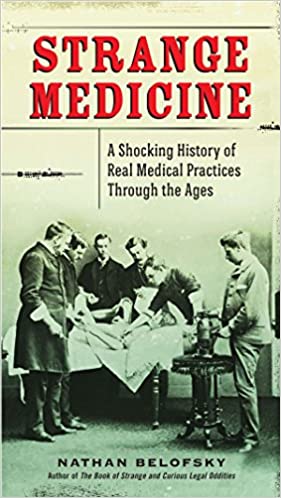
Throughout history, many strange and horrifying medical practices would make even the most hardened individual queasy. In his book Strange Medicine: A Shocking History of Real Medical Practices Through the Ages, Nathan Belofsky looks at some of the most bizarre treatments that have been used over the centuries.
From bloodletting and trepanning to lobotomies and leeches, Belofksy sheds light on why these procedures were considered to be effective at one time and how they ultimately fell out of favor. While some of the techniques described in the book may seem barbaric, they offer a fascinating glimpse into the history of medicine. For anyone interested in the gruesome and the bizarre, Strange Medicine is a must-read.
Quackery: A Brief History of the Worst Ways to Cure Everything by Lydia Kang and Nate Pedersen
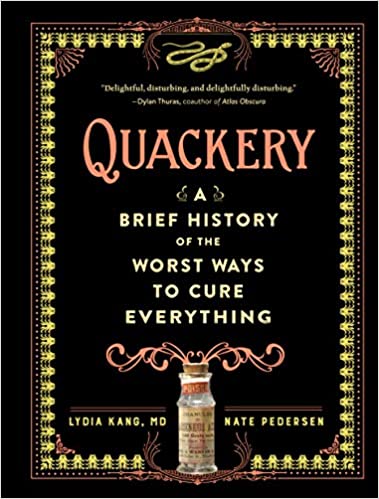
In Quackery: A Brief History of the Worst Ways to Cure Everything, authors Lydia Kang and Nate Pedersen explore medical quackery’s long and often bizarre history. From ancient Egyptian bloodletting to Victorian-era hair-growth tonics, the book details some of the most outlandish therapies that have been used over the centuries to cure everything from baldness to tuberculosis.
While many of these methods may seem laughable today, at the time, they were often taken very seriously by both doctors and patients. In addition to providing a fascinating glimpse into the past, Quackery serves as a reminder of the importance of critical thinking regarding our health.
By critically evaluating the claims made by medical professionals, we can protect ourselves from harmful treatments and ensure that we receive the best possible care.
The Immortal Life of Henrietta Lacks by Rebecca Skloot
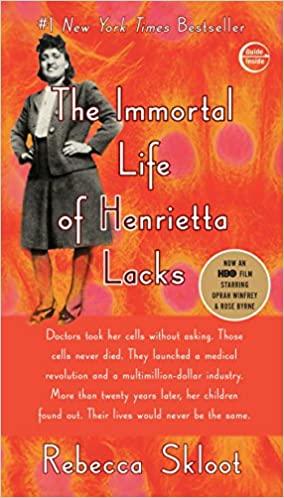
The Immortal Life of Henrietta Lacks by Rebecca Skloot is an essential book. It tells the story of Henrietta Lacks, a young African American woman who died of cancer in 1951, and how her cells were harvested without her knowledge or consent.
These “HeLa” cells became one of the essential tools in medical research, helping to develop the polio vaccine, cancer treatments, and other life-saving therapies.
However, as Skloot vividly illustrates, the HeLa cells were obtained at great cost to Henrietta and her family.
They were never compensated for their contribution to science and were left to grapple with the legacy of Henrietta’s cells long after she was gone. The Immortal Life of Henrietta Lacks is a powerful reminder of the importance of informed consent in medical research.
Best Medical History Books
The medical history books on this list are a great way to learn more about the fascinating and gruesome history of medicine. Whether you’re a student or just someone interested in the topic, these books will give you a better understanding of where medicine has been and where it is headed.
We hope you enjoy reading them as much as we enjoyed putting this list together!

